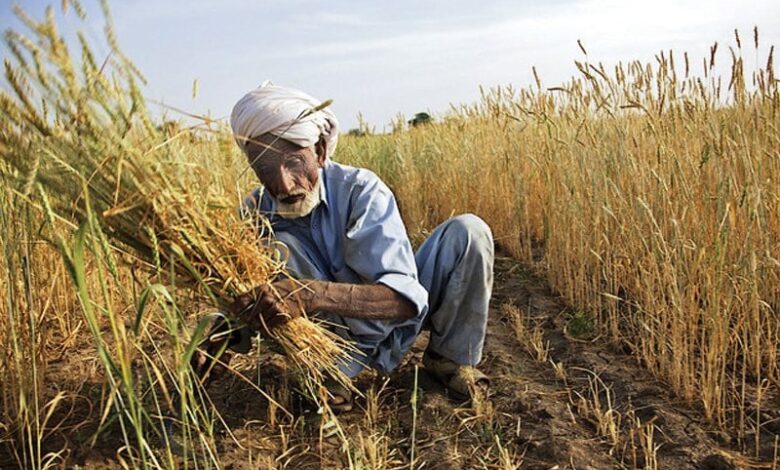Agriculture sector faces funding shortfall in Budget 2024-25

LAHORE:
The saviour of Pakistan’s economy for FY-24, the agriculture sector, only managed to attract Rs5 billion for the next fiscal year from the incumbent government.
During his budget speech on Wednesday, Finance Minister Muhammad Aurangzeb stated that agriculture is the main pillar of Pakistan’s economy, contributing 24% to GDP and 37.4% to employment generation. The country’s food security and manufacturing depend on this sector, which also possesses enormous export potential.
The prime minister announced the Kissan Package in 2022, which included a markup and risk-sharing scheme for farm mechanisation. “For the next fiscal year, Rs5 billion have been allocated for this scheme,” Aurangzeb said. He further mentioned that this fund will provide financing for planters, tractors, threshers, harvesters, and mobile grain dryers, which will help increase farm output.
According to the Economic Survey of Pakistan, the agriculture sector showed strong growth of 6.25% during FY-24, with all major crops producing more than anticipated and posting a growth of 11.03%.
Read also: PPP, PML-N in dispute over agriculture tax
However, the farmer community continues to face issues due to the non-availability of overpriced input materials and rising energy costs. They are not optimistic about the next year, believing that many farmers may not be able to purchase necessary farm inputs to cultivate crops.
“The purchasing power of a farmer is at an all-time low. There are many factors behind this. How will they manage finances to grow their next crop?” asked President of the Kissan Board Pakistan, Sardar Zafar Hussain Khan.
The farmer community across Punjab is already facing significant losses on account of their wheat crop, as the government is not purchasing it, and open market prices have crashed due to an influx of excessive wheat stocks.
“This year, agriculture growth was more than 6%. Why is the government setting next year’s growth target at only 2%? They know that farmers will not be able to purchase urea, pesticides, etc., which is likely to result in low production in the next sowing seasons,” Khan said.
Unfortunately, farmer lobbies in Pakistan are not strong, and over 60% of public representatives in parliament are not concerned with what is happening to farmers. “There is a high chance that Pakistan may face food security issues in the coming years if farmers’ issues are not resolved,” he added.
While there is widespread disappointment regarding the measures taken by the federal government for the agriculture sector in the next fiscal year, some industry stakeholders believe that the federal government might now pass the responsibility to the provincial governments to announce significant agriculture budgets.
Read: Agriculture shines, factories struggle
Many believe that the ongoing fiscal year’s allocations for the agriculture sector were much higher when the same government, under the Pakistan Democratic Movement, increased the amount of the Kissan package from Rs1800 billion to Rs2250 billion. The previous government believed that through the package, some Rs2000 billion had been shifted to the rural economy for further crop improvement.
However, this year’s lack of allocations for subsidies may lead to more problems for ordinary farmers in purchasing fertilizer, pesticides, etc. “The agriculture sector is completely ignored in the federal budget,” said FPCCI Agriculture Panel Chief Ahmad Jawad while talking to Express Tribune.
He said they were expecting that in order to double agriculture production, as per the vision of Prime Minister Shehbaz Sharif, the government would go the extra mile, but no measures were announced in the budget speech. “I think the federal government has totally handed over the agriculture allocation to provinces, expecting them to announce it in their provincial budgets, despite tube well electricity tariffs, fertilizer, seed, and pesticides being federal subjects.”
As the apex body head on agriculture, Jawad added that he is disappointed the government has ignored the agriculture sector in the federal budget, regardless of the recently launched Green Pakistan initiative.
Source link



